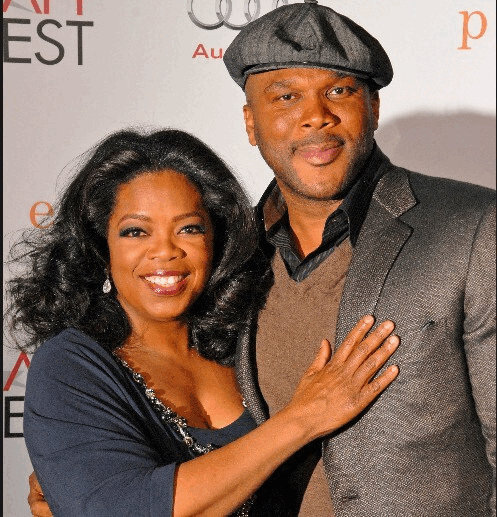“BLACK WOMEN WERE NEVER HERE…”

OPRAH WINFREY AND MONIQUE AND TOM CRUISE AND SO MANY MORE
Many ask “How could sexual exploitation be so prevalent in the Entertainment Industry?” Hugh Hefner, Bill Cosby, R. Kelly, Jeffrey Epstein, Harvey Weinstein, Sean Combs…
The answer is: Blacks are paid so much less in comparison to white performers in the same movie – it makes everyone think they must be less…
BY RUTHIE DITUCCI
The entertainment industry has long been criticized for its glaring pay disparities, particularly when it comes to Black actors. Despite their talent and contributions, Black performers are often paid significantly less than their white counterparts. This systemic undervaluation is starkly illustrated by the case of Taraji P. Henson, who was paid only $150,000 for her role in a film where her white co-stars earned millions. Such disparities are not just about money; they reflect a broader issue of respect and recognition within the industry.
This lack of respect and fair compensation creates an environment where exploitation can thrive. The recent allegations against Sean Combs, for instance, highlight how easily such situations can arise. When an industry consistently undervalues a group of people, it sends a message that they are less worthy of fair treatment and respect. This mindset can permeate all levels of the industry, making it easier for individuals to mistreat Black performers without facing significant repercussions.
Brad Pitt was paid Ten million dollars for his role in the Banjamin Button movie – Kate Blanchett. earned more or less that amount as well. Henson was paid $150,000 by Oprah for her work in the COLOR PURPLE. Oprah’s movies do not flop because of anything Teraji did or didn’t do.
Oprah’s movies flop because their themes are unrelatable to the American public. She has passed her prime and has to admit that she’s in the fourth quarter of life. Little she comes up with now is going to attract young people.
The pay gap is a symptom of a deeper problem: the industry’s failure to take Black actors seriously. This is not just about individual cases but a systemic issue that affects the entire industry. When Black actors are consistently paid less, it reinforces a hierarchy where they are seen as less valuable. This perception can lead to a range of mistreatment, from being offered fewer opportunities to facing discrimination and harassment.
Moreover, the financial disparity has broader implications for the careers of Black actors. Lower pay means fewer resources to invest in their craft, less access to high-profile roles, and a diminished ability to negotiate better contracts. This creates a vicious cycle where Black performers are continually marginalized and undervalued, further entrenching the industry’s discriminatory practices.
The case of Sean Combs is a stark reminder of how these systemic issues can manifest in harmful ways. When the industry as a whole does not respect Black performers, it becomes easier for individuals to exploit and mistreat them. This is not just about one person or one incident but a reflection of a broader culture that needs to change. Adding to this, extreme cases of power abuse, such as the Fulton County YSL case, also do great harm to the Black community.
In Fulton County Georgia, a Black prosecutor has refused to respond to legitimate FOI requests and subpoenas from the Georgia State Senate and the United States’ Congress, claiming she “answers to no one.” In this case, where the jailers and prosecutors are mostly Black, the community is so entertained by the debate over whether YSL is a record label or a street gang that they overlook the denial of civil rights to hundreds of their own Black men. Black men in that community are denied their constitutionally guaranteed right to a speedy trial (in some cases for up to five years). What’s the real purpose of having so many Black men incarcerated?
So that if there is a hole in their YSL RICO case, the prosecutors can go pick from any of the five hundred or so men sitting in jail cells. Prosecutors can use any one of them to fill out their investigation whether they know about YSL or not – it doesn’t matter.
After being incarcerated in many cases, for years, young Black men will admit to any aspect of the case in the hopes that they’ll be let out awhile. Some of these young men were just putting gas in their car at a gas station at the same time a suspect was present.
The fact that there were alone, prompted and encouraged detectives and prosecution investigators to arrest these lone men merely because they were in the wrong place at the wrong time. This practice is considered a hate crime and criminal injustice in any county in every part of the country.
Why, then, has the YSL trial been allowed to continue for so long without declaring a mistrial? Because the Black community is so pleased that most of the prosecutors and jailers are Black and in charge of their local jails and the prosecutor’s office, they fail to recognize the inherent and systemic racism happening in their own courts before their very eyes.
The YSL case isn’t about street gangs. The YSL trial in Fulton County, Georgia, is a prosecutor’s fight over political power.
Addressing these race disparities requires a concerted effort from all levels of all industries. It means not only paying Black actors fairly but also ensuring they have equal opportunities and are treated with the respect they deserve. This involves challenging the biases and stereotypes that have long plagued the industry and creating a more inclusive and equitable environment.
And the racism practiced in Fulton County, Georgia where Black men are incarcerated without ever being charged just to serve as convenient “picking” by the prosecutors and law enforcement is as racist as ever. Unfortunately, the local Black community does not see it because the slave driver’s beating the plantation slaves, (the prosecution’s officers) are also Black.
Ultimately, the entertainment industry must recognize that its success depends on the contributions of all its performers. By valuing and respecting Black actors, the industry can begin to address the systemic issues that have allowed exploitation and mistreatment to persist. This is not just a moral imperative but a necessary step towards creating a more just and equitable industry for all.
In conclusion, the pay disparities and lack of respect for Black actors in the entertainment industry have far-reaching consequences. They create an environment where exploitation can thrive and where Black performers are continually marginalized. Addressing these issues requires a fundamental shift in how industries value and treat its talent, ensuring that all performers are given the same respect and opportunities – not what they’ve done traditionally.
Transparency: The author worked at the SDC Recording Studio where radio commercials were recorded for national distribution where she witnessed a great deal of violence against women and later worked at McKinsey & Co.’s New York Office. To McKinsey’s credit I admit I learned a great deal about business.



